155 and Falling: Iraq Sinks in Global Press Freedom Ranking
For the first time, global press freedom is classified as a "difficult situation," with Iraq reflecting this decline as part of the world's most dangerous region for journalists.
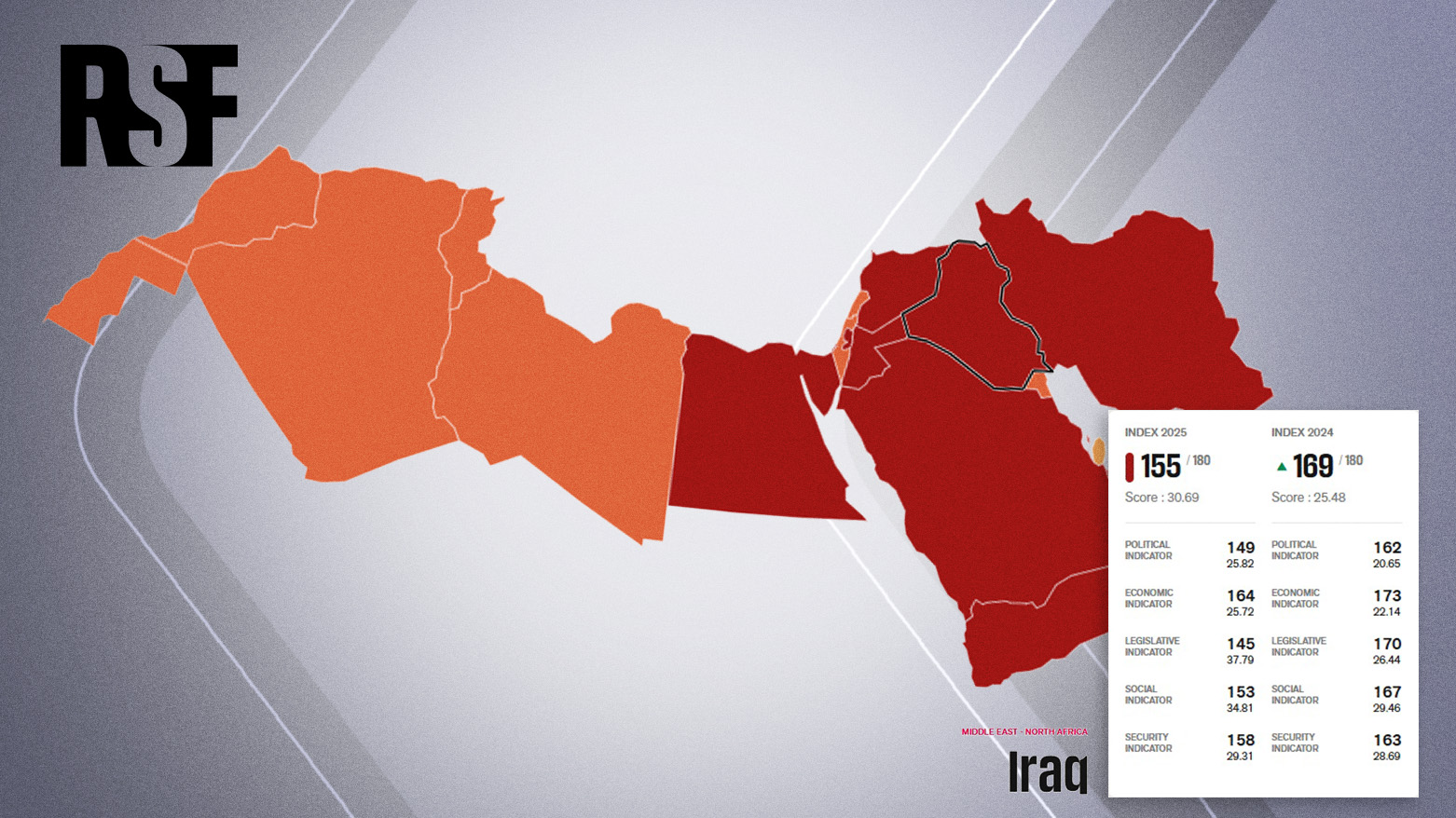
By Kamaran Aziz
ERBIL (Kurdistan24) — Iraq has fallen to 155th place in the 2025 World Press Freedom Index, a ranking released this week by Reporters Without Borders (RSF) that reveals a worsening global climate for journalism. This sharp decline reflects Iraq's deepening media crisis, driven by a dangerous cocktail of political repression, partisan control, economic dependency, and increasing threats against journalists.
For the first time in the Index's history, the global state of press freedom has been officially classified as a "difficult situation." Iraq is emblematic of this regression. Not only does it remain in the bottom quarter of the rankings, but it is also part of a wider Middle East-North Africa region that continues to be the most hazardous for journalists globally.
In Iraq, the media landscape is fragmented and politicized. Most outlets are aligned with or directly funded by political parties and religious groups. This extreme partisanship has undermined journalistic independence and contributed to an atmosphere of aggressive polarization.
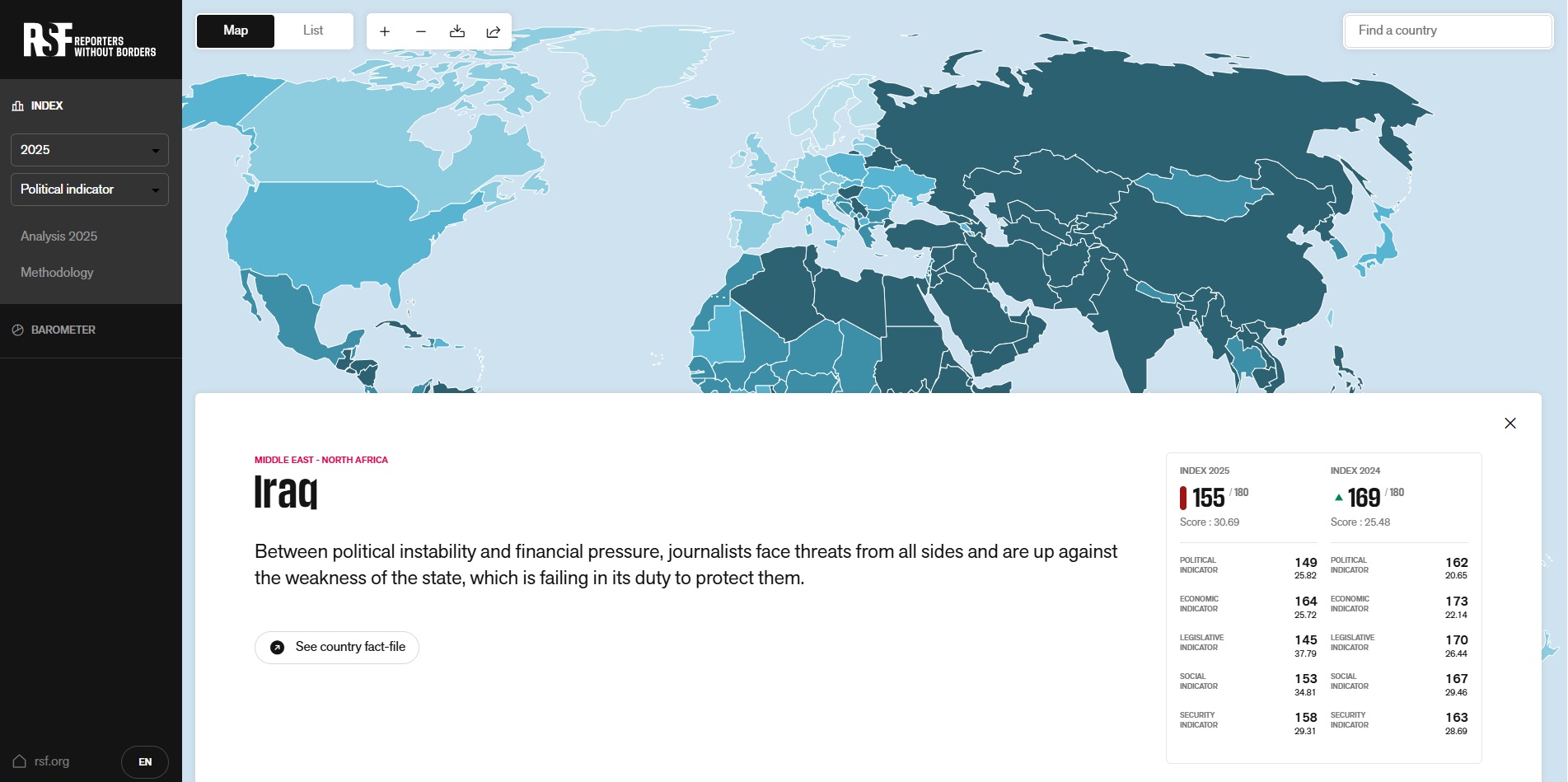
The RSF report notes that the legal framework further restricts press freedom. Although Iraq's constitution nominally protects freedom of expression, vague and repressive laws, such as a repeatedly proposed cybercrime bill, threaten journalists with life imprisonment for online content deemed to harm the country’s unity or interests. In practice, defamation lawsuits and censorship are routinely deployed by political elites to silence investigative reporting.
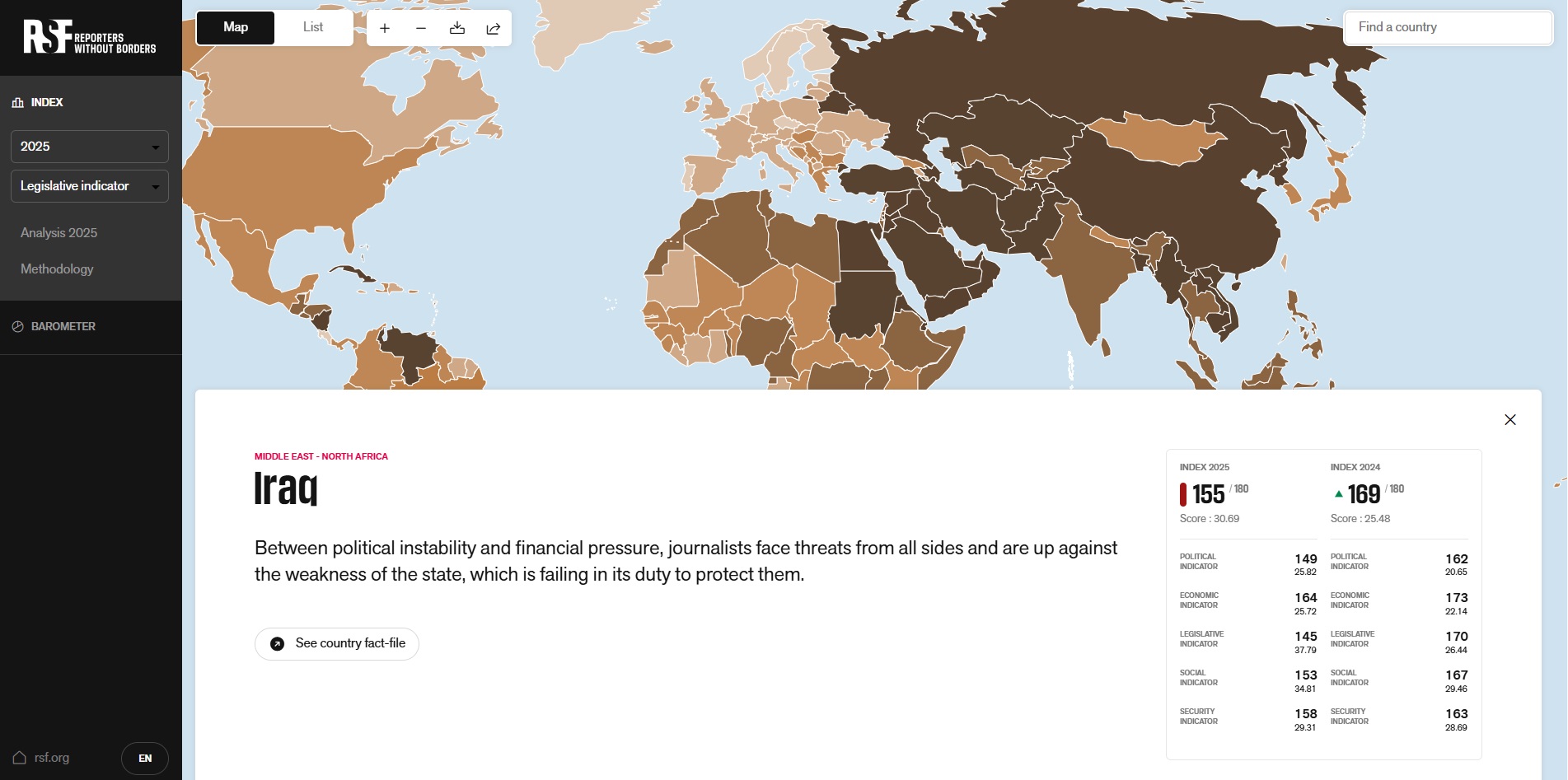
Economically, Iraqi media are in dire straits. Funding is scarce, inconsistent, and often conditional upon political loyalty. Media affiliated with well-funded political entities enjoy disproportionate advantages, while independent outlets are either forced to shut down or survive through social media, often without sufficient resources to maintain professional standards. The RSF's economic indicator for Iraq mirrors this collapse, as many outlets struggle to secure even basic financial viability.
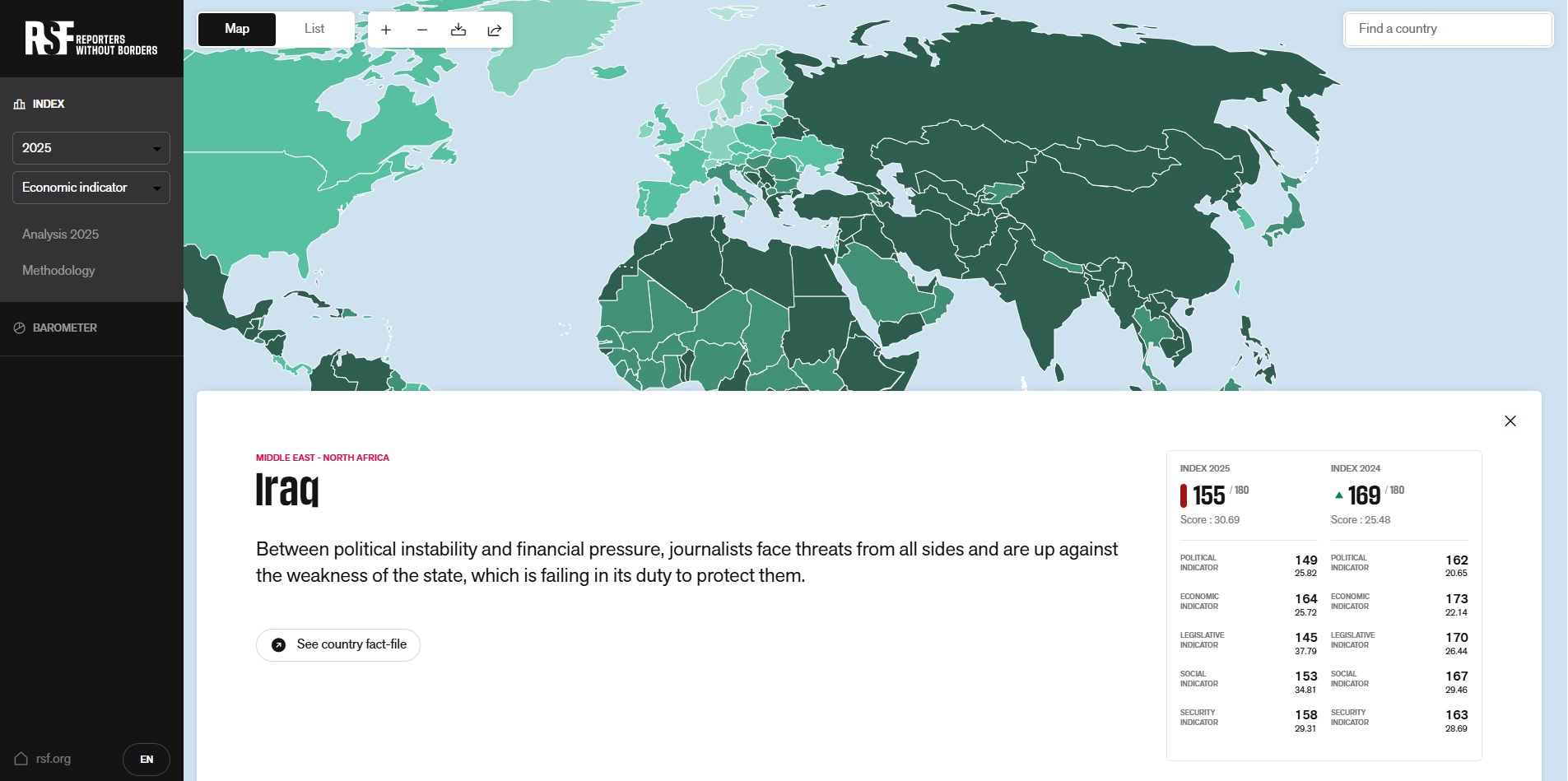
The sociocultural climate adds yet another layer of repression. Journalists who investigate corruption or question influential religious or state institutions face suspension, accusations of defamation, or are charged with "damaging national symbols."
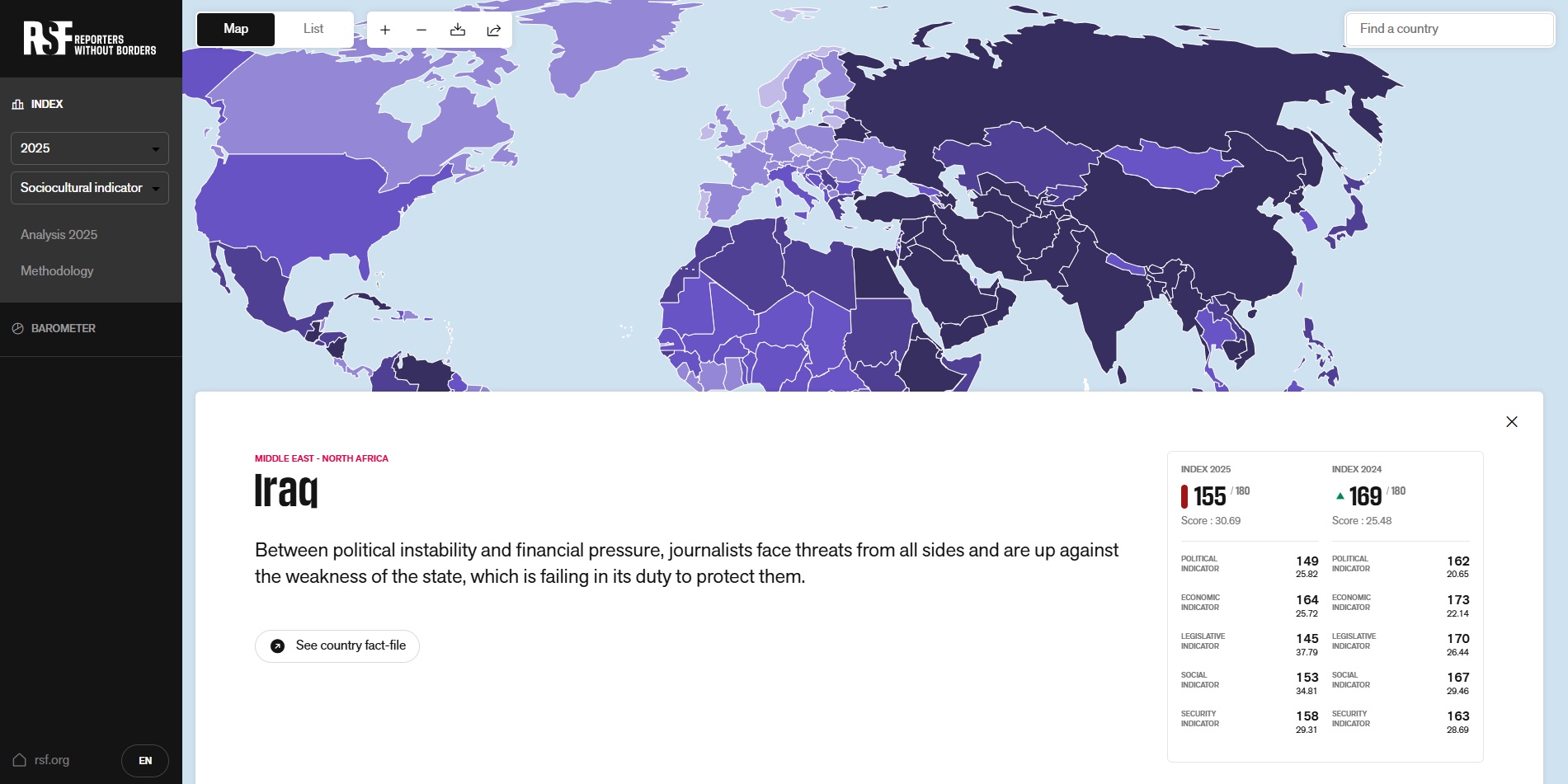
Despite some degree of political stability in recent years, the safety of journalists remains precarious. Dozens have been killed in recent years by both jihadist factions and powerful militias, often with total impunity. Death threats and abductions, once reserved for prominent media figures, are now used widely against even lesser-known reporters, contributing to a culture of fear and self-censorship.
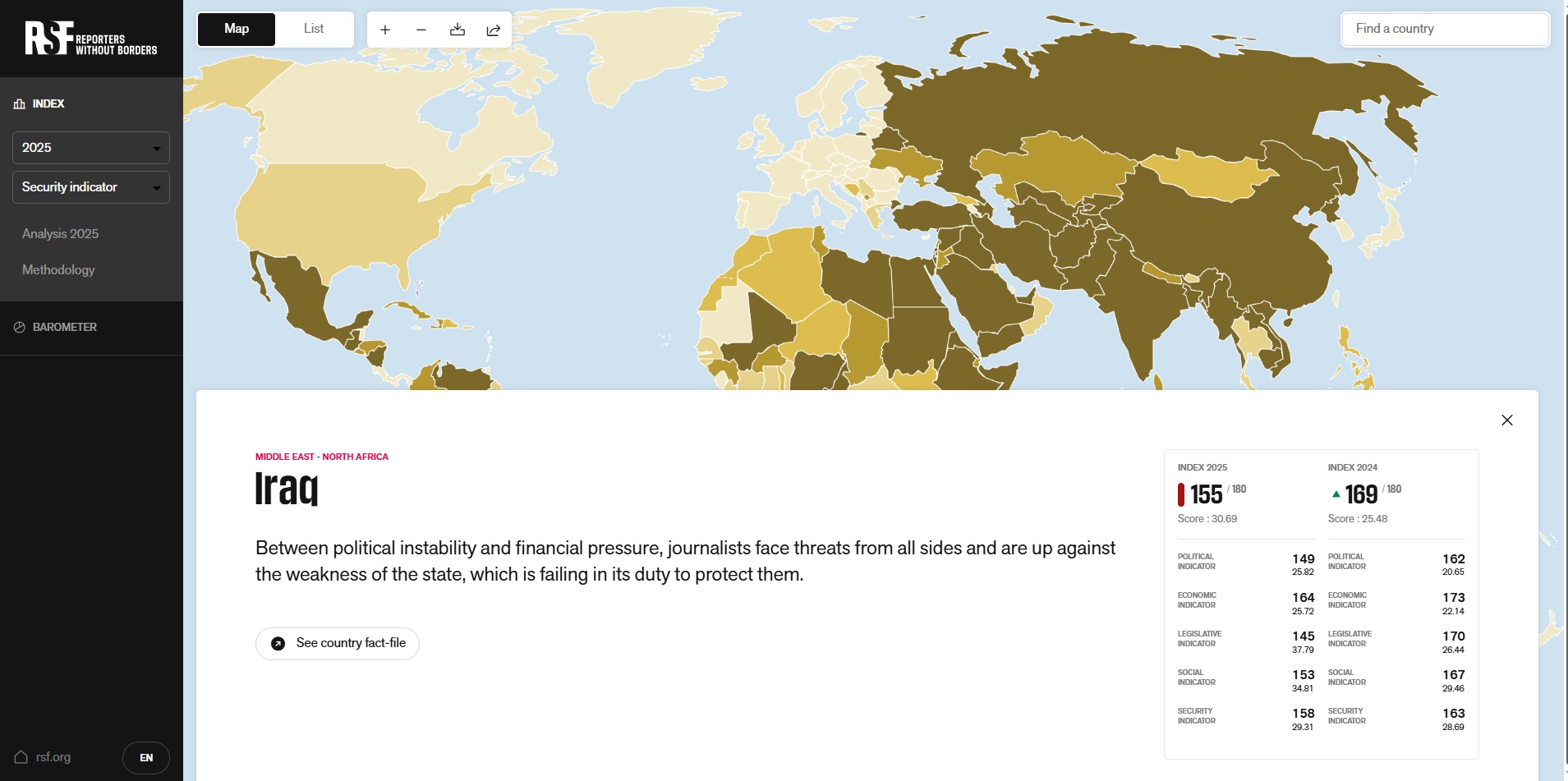
The 2025 RSF Index, covering 180 countries, is particularly alarming in its economic findings. Globally, 160 countries report that their media achieve financial stability either "with difficulty" or "not at all." Iraq is firmly embedded within this trend. As editorial director Anne Bocandé warned, “Without economic independence, there can be no free press.”
The Middle East and North Africa as a whole remains the most dangerous region for journalists, due not only to violence but also to draconian legal codes and systemic economic insecurity. Iraq shares this bleak ranking space with Syria (177th), Iran (176th), and Bahrain (157th).
As global press freedom plunges to historic lows, the fate of Iraq’s media reflects a microcosm of wider democratic erosion: a press tethered to political elites, battered by financial hardship, and silenced by fear. The call for reform has never been more urgent.